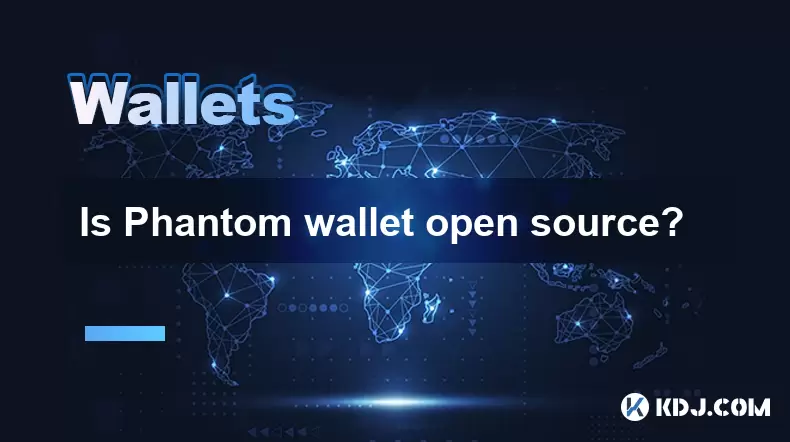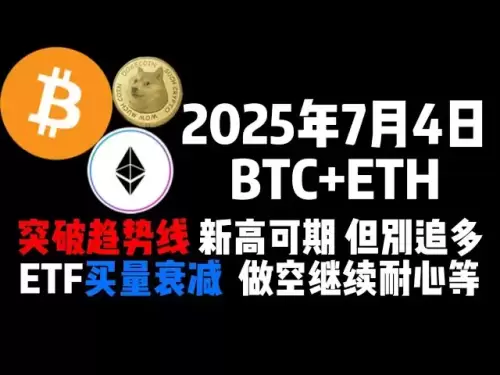-
 Bitcoin
Bitcoin $108,463.3266
-1.47% -
 Ethereum
Ethereum $2,535.8576
-3.62% -
 Tether USDt
Tether USDt $1.0006
0.02% -
 XRP
XRP $2.2352
-2.24% -
 BNB
BNB $658.1049
-0.63% -
 Solana
Solana $149.9207
-2.53% -
 USDC
USDC $0.9998
-0.07% -
 TRON
TRON $0.2857
0.45% -
 Dogecoin
Dogecoin $0.1659
-4.24% -
 Cardano
Cardano $0.5784
-3.85% -
 Hyperliquid
Hyperliquid $38.4944
-4.70% -
 Sui
Sui $2.9107
-4.19% -
 Bitcoin Cash
Bitcoin Cash $485.3637
-3.32% -
 Chainlink
Chainlink $13.3074
-4.18% -
 UNUS SED LEO
UNUS SED LEO $9.0499
0.41% -
 Avalanche
Avalanche $18.0347
-3.98% -
 Stellar
Stellar $0.2394
-2.23% -
 Toncoin
Toncoin $2.8110
-2.68% -
 Shiba Inu
Shiba Inu $0.0...01155
-3.23% -
 Litecoin
Litecoin $87.7967
-3.87% -
 Hedera
Hedera $0.1555
-2.87% -
 Monero
Monero $317.3839
-1.79% -
 Polkadot
Polkadot $3.4144
-4.90% -
 Dai
Dai $1.0000
-0.02% -
 Ethena USDe
Ethena USDe $1.0003
0.00% -
 Bitget Token
Bitget Token $4.4734
-2.29% -
 Uniswap
Uniswap $7.2556
-6.53% -
 Pepe
Pepe $0.0...09693
-7.27% -
 Aave
Aave $267.0924
-4.81% -
 Pi
Pi $0.4834
-3.31%
How to avoid address conflicts when generating an Ethereum wallet address?
Secure Ethereum address generation hinges on strong random number generators (RNGs); weak RNGs increase the risk of identical private keys, leading to address conflicts and potential fund loss. Use reputable wallets or hardware wallets for reliable key generation.
Mar 17, 2025 at 01:51 am

Key Points:
- Ethereum addresses are generated from public keys, derived from private keys. Address conflicts arise from generating the same private key, leading to the same public key and ultimately the same address.
- Preventing address conflicts relies entirely on the randomness and security of the private key generation process.
- Weak or predictable random number generators (RNGs) are the primary culprit in address conflicts.
- Secure, well-vetted libraries and robust hardware are crucial for generating unique Ethereum addresses.
How to Avoid Address Conflicts When Generating an Ethereum Wallet Address?
Understanding the root cause of address conflicts is paramount. An Ethereum address is a cryptographic hash of a public key, which in turn is derived from a private key. If two different individuals, or even the same individual twice, generate the identical private key, they will inevitably end up with the identical public key and therefore the same Ethereum address. This leads to a disastrous conflict where both parties would potentially have control over the same funds.
The problem isn't with the address generation algorithm itself; it's with the process of creating the initial private key. Ethereum utilizes elliptic curve cryptography, and the private key is essentially a large random number. The quality of the randomness directly impacts the uniqueness of the generated address.
The most common way address conflicts occur is through the use of weak or predictable random number generators (RNGs). A poorly implemented RNG might produce similar or even duplicate private keys, especially when generating a large number of addresses. This is a serious vulnerability and can lead to significant financial losses.
To avoid address conflicts, you must ensure your private key generation process is robust and utilizes a cryptographically secure RNG. This is not something you should attempt to implement yourself unless you're a cryptography expert. Relying on established, well-vetted libraries and tools is critical.
Here are some best practices to ensure you avoid address conflicts:
- Use reputable wallet software: Established wallet providers invest heavily in secure RNGs and regularly audit their code. Choose wallets with a strong reputation and a history of security.
- Utilize hardware wallets: Hardware wallets are physical devices designed for secure key generation and storage. They often utilize dedicated, tamper-resistant RNGs, significantly reducing the risk of address conflicts.
- Avoid self-implemented key generation: Unless you possess deep cryptographic expertise and understand the nuances of secure RNG implementation, avoid writing your own key generation code. The chances of introducing vulnerabilities are very high.
- Verify the entropy source: If you're using a library or tool for key generation, understand its entropy source – the mechanism used to create randomness. A strong entropy source is crucial for avoiding conflicts.
- Regularly update your wallet software: Updates often include security patches that address potential vulnerabilities, including those related to RNGs.
Let's delve deeper into specific aspects of secure key generation:
- Deterministic vs. Non-Deterministic Wallets: Deterministic wallets derive all addresses from a single seed phrase (a mnemonic). While convenient, a compromised seed phrase compromises all addresses. Non-deterministic wallets generate each address independently, offering a different level of security but requiring more careful management.
- The Role of Entropy: Entropy refers to the randomness used to generate the private key. High entropy means less predictability and a lower chance of collisions. Software relying on operating system-provided randomness might not offer sufficient entropy for cryptographically secure key generation.
- Library Choices: When using libraries for key generation, opt for those extensively reviewed and audited by the community. Libraries with a history of security and proven robustness are preferable.
- Hardware Security Modules (HSMs): For high-security applications, consider using HSMs. These are specialized hardware devices designed to protect cryptographic keys and perform secure key generation.
Frequently Asked Questions:
Q: Can I reuse an Ethereum address? While technically you can reuse an address, it's strongly discouraged. Reusing addresses compromises your privacy and can reveal connections between your transactions.
Q: What happens if an address conflict does occur? If two individuals have the same address, whoever possesses the private key can control the funds. The other party would lose access to their funds.
Q: Are all Ethereum wallets equally secure in terms of address generation? No. The security of address generation depends heavily on the wallet's implementation, the quality of its RNG, and its overall security architecture.
Q: Can I generate multiple addresses from a single private key? No, a single private key corresponds to a single public key and, therefore, a single Ethereum address. However, deterministic wallets allow you to derive many addresses from a single seed phrase, but the underlying security relies on the seed phrase's secrecy.
Q: What are the consequences of using a weak RNG? A weak RNG increases the probability of generating duplicate private keys, leading to address conflicts and the loss of funds.
Q: How can I check if my wallet is using a strong RNG? It's difficult to directly verify the strength of an RNG without deep technical knowledge. The best approach is to trust established, reputable wallet providers and use well-vetted libraries.
Disclaimer:info@kdj.com
The information provided is not trading advice. kdj.com does not assume any responsibility for any investments made based on the information provided in this article. Cryptocurrencies are highly volatile and it is highly recommended that you invest with caution after thorough research!
If you believe that the content used on this website infringes your copyright, please contact us immediately (info@kdj.com) and we will delete it promptly.
- Bitcoin's Pattern Break: Are HODLers the Key to the Next Surge?
- 2025-07-04 18:50:12
- Bitcoin Price, Trump's Bill, and the $150K Dream: A NYC Take
- 2025-07-04 19:50:12
- Ethereum, LILPEPE, and the July Bounce: Will Pepe Steal ETH's Thunder?
- 2025-07-04 19:10:12
- Binance Institutional Loans: Unlocking 4x Leverage and Zero Interest for Whales
- 2025-07-04 19:15:12
- Bitcoin Bull Run: Analysts Eye Peak in Late 2025?
- 2025-07-04 19:20:13
- Pepe Indicators, Bullish Forecast: Can the Meme Coin Rally?
- 2025-07-04 19:25:12
Related knowledge

How to cancel a pending transaction in Phantom wallet?
Jul 03,2025 at 07:21pm
Understanding Pending Transactions in Phantom WalletA pending transaction in the Phantom wallet occurs when a user initiates a transfer or interaction with the Solana blockchain, but it hasn't yet been confirmed by the network. This can happen due to various reasons such as low transaction fees, network congestion, or incorrect gas settings. It's import...

How to see the estimated value of my tokens in Phantom wallet?
Jul 04,2025 at 12:21am
What is Phantom Wallet?Phantom wallet is one of the most popular cryptocurrency wallets designed for the Solana blockchain. It allows users to store, send, receive, and manage various tokens built on Solana, including SPL tokens and NFTs. The wallet offers a user-friendly interface, making it accessible for both beginners and advanced users in the crypt...

How to lock my Phantom wallet extension?
Jul 03,2025 at 11:14am
What Is the Phantom Wallet and Why Lock It?The Phantom wallet is a popular non-custodial cryptocurrency wallet designed for interacting with the Solana blockchain. Supporting both browser extensions and mobile apps, Phantom allows users to store, send, receive, and stake SOL tokens, as well as interact with decentralized applications (dApps). Securing y...

Does Phantom wallet offer two-factor authentication (2FA)?
Jul 03,2025 at 09:00am
Understanding Phantom Wallet and Its Security FeaturesPhantom wallet is a widely used non-custodial cryptocurrency wallet that supports the Solana blockchain. It allows users to store, send, receive, and interact with decentralized applications (dApps) seamlessly. As security is a top priority for any crypto wallet user, security features like two-facto...

What is "rent" on Solana and how does it affect my Phantom wallet?
Jul 02,2025 at 08:35pm
Understanding 'Rent' on SolanaIn the context of Solana, the term 'rent' refers to a storage fee that users pay for maintaining data on the blockchain. Unlike Ethereum, where storage costs are paid once via gas fees during contract deployment, Solana implements a recurring cost model to ensure efficient usage of network resources. This means that any acc...

Is Phantom wallet open source?
Jul 03,2025 at 12:29am
What is Phantom Wallet?Phantom wallet is a non-custodial cryptocurrency wallet primarily designed for the Solana blockchain. It allows users to store, send, receive, and interact with decentralized applications (dApps) on the Solana network. The wallet is available as a browser extension and mobile application, offering a seamless experience for both be...

How to cancel a pending transaction in Phantom wallet?
Jul 03,2025 at 07:21pm
Understanding Pending Transactions in Phantom WalletA pending transaction in the Phantom wallet occurs when a user initiates a transfer or interaction with the Solana blockchain, but it hasn't yet been confirmed by the network. This can happen due to various reasons such as low transaction fees, network congestion, or incorrect gas settings. It's import...

How to see the estimated value of my tokens in Phantom wallet?
Jul 04,2025 at 12:21am
What is Phantom Wallet?Phantom wallet is one of the most popular cryptocurrency wallets designed for the Solana blockchain. It allows users to store, send, receive, and manage various tokens built on Solana, including SPL tokens and NFTs. The wallet offers a user-friendly interface, making it accessible for both beginners and advanced users in the crypt...

How to lock my Phantom wallet extension?
Jul 03,2025 at 11:14am
What Is the Phantom Wallet and Why Lock It?The Phantom wallet is a popular non-custodial cryptocurrency wallet designed for interacting with the Solana blockchain. Supporting both browser extensions and mobile apps, Phantom allows users to store, send, receive, and stake SOL tokens, as well as interact with decentralized applications (dApps). Securing y...

Does Phantom wallet offer two-factor authentication (2FA)?
Jul 03,2025 at 09:00am
Understanding Phantom Wallet and Its Security FeaturesPhantom wallet is a widely used non-custodial cryptocurrency wallet that supports the Solana blockchain. It allows users to store, send, receive, and interact with decentralized applications (dApps) seamlessly. As security is a top priority for any crypto wallet user, security features like two-facto...

What is "rent" on Solana and how does it affect my Phantom wallet?
Jul 02,2025 at 08:35pm
Understanding 'Rent' on SolanaIn the context of Solana, the term 'rent' refers to a storage fee that users pay for maintaining data on the blockchain. Unlike Ethereum, where storage costs are paid once via gas fees during contract deployment, Solana implements a recurring cost model to ensure efficient usage of network resources. This means that any acc...

Is Phantom wallet open source?
Jul 03,2025 at 12:29am
What is Phantom Wallet?Phantom wallet is a non-custodial cryptocurrency wallet primarily designed for the Solana blockchain. It allows users to store, send, receive, and interact with decentralized applications (dApps) on the Solana network. The wallet is available as a browser extension and mobile application, offering a seamless experience for both be...
See all articles

























































































